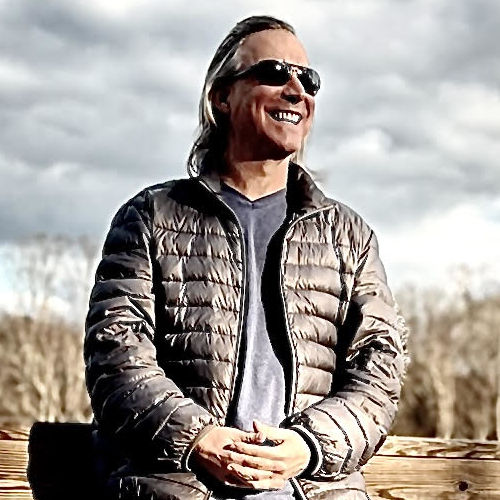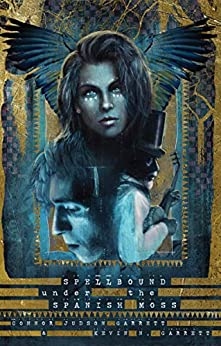What Dick Francis taught me over drinks

This travel writer once sat in a hotel bar and talked literary success with the legendary author, who had more than a few nuggets of wisdom to share.
by Kevin N. Garrett
Dick Francis wrote more than forty bestselling books in his lifetime. He was creative and prolific. I was fascinated with his storytelling and his pace of production.
Where did his creativity spring from, and how had he kept it flowing all those years? I wondered how he came up with the creative ideas of crimes involving the horse racing set and never ran dry. How was he able to produce a bestseller at a pace of one per year for decades? How was he trained as a writer? What was the structure of his daily, weekly, and yearly work life? How did he get his first book published?
His author bio in one of his books stated that he lived on an island in the Caribbean. I was on a plane flying to an assignment on Bonaire for Islands magazine as I read this fun fact. I was young and trying to figure out a career path as a writer. At this juncture I was writing for Coastal Living, Caribbean Travel & Life, Modern Bride, and a guidebook, Fielding’s Caribbean.
 I was regularly down on the islands and thought I’d look him up. Maybe we could sit a spell, and he would share some success secrets over lunch. When I checked into the hotel on Bonaire, I grabbed the phone book and looked through the listings for Mr. Francis. No luck.
I was regularly down on the islands and thought I’d look him up. Maybe we could sit a spell, and he would share some success secrets over lunch. When I checked into the hotel on Bonaire, I grabbed the phone book and looked through the listings for Mr. Francis. No luck.
More assignments came my way, and I continued my travels to the islands: Anguilla, Aruba, Barbados, Antigua, Barbuda, the British and U.S. Virgin Islands, Jamaica, Nevis, St. Lucia, and so on. I arrived in Grand Cayman, grabbed the phone book, and to my great delight, there was a listing for Richard Francis! Eureka. I nervously dialed and then heard a British accent on the other end answer, “Hello.”
“Mr. Francis, this is Kevin Garrett calling. I am here on Grand Cayman for a few days. I am a big fan of yours and a writer myself. May I stop by your place to visit with you and talk writing?”
His response: “How did you get this number?”
“You are in the phone book, sir. I won’t take up much of your time.”
“No. Today is not a good day for us.”
I called each day for the next three days and got a polite variation of no each day.
On my last day on Grand Cayman, I called again and said that I would be leaving in the morning and my greatest wish would be to see him for few moments, but that this may not work out.
He replied, “You may not come to my home, but I am coming to your hotel for drinks in one hour, and you are buying.”
He drove up to the porte-cochère in his Mercedes Benz and we went into the bar area. Mr. Francis ordered a Campari and soda. I reached for a notepad, not wanting to miss a word. He settled in and gave and gave. I told him that I was struggling to figure out my career in writing and photography, and was certain that a few words of his story would be endlessly helpful.
I was regularly down on the islands and thought I’d look him up. Maybe we could sit a spell, and he would share some success secrets over lunch.
Mr. Francis generously shared his life and evolution as a writer. I felt if I could reverse his story, it could help me see a path. How did he start as a 36-year-old non-writer and retired jockey to become a bestselling author?
Mr. Francis was first asked to write a story about his life as a jockey for a London newspaper. A publisher saw that and asked him to expand it into an autobiography. He was offered a ghostwriter. Mr. Francis decided to write it himself. It became a bestseller. When the publisher asked him for a second book, Mr. Francis said, “That’s it. That’s my story.” The publisher replied, “Can you make up one?”
Luckily for his readers, Mr. Francis complied. I peppered him with questions: How did you structure your deals with the publisher? How did you get the bookstores to keep all of your books together, in stock, as a collection? Tell me about your year. You produce one book a year? Tell me your process and how you and your wife have carved out a life around that disciplined schedule.
To that last question, he said that every year had a rhythm. The disciplined former Royal Air Force pilot combined his book tour with vacation and research for the next book. Then he’d come back and write.
Like Hemingway, who wrote in the morning targeting a word count goal, Mr. Francis wrote daily at a desk after his walk on Seven Mile Beach. By the time the famed writer took his leave, we’d been talking about his craft for three hours. I am eternally grateful to Dick Francis for making the time to share his story. His words have guided me, and I treasure that day always.
Many of us suffer from impostor syndrome, me included. We imagine that bestselling authors must be better educated, have better connections, and somehow be better prepared than we are. Like him, I was already in my 30s with two young boys to support. I did not have time to go back to school. I could only go forward with what I had in me. What he said that helped me was that you have to tell a story that you know, and tell it well. “I had been a jockey since I was a teenager,” he said. “I had more than twenty years as a professional rider. All of my fiction novels were around horse racing. What’s your story and what do you know?”
Years later, when my son and writing partner Connor Judson Garrett shared a long list of ideas that he was considering for novels that he wanted to pursue, the one idea that sparked my imagination was a fantasy historical fiction story set in the swamps around Savannah, Georgia.
Shortly thereafter, he departed for Beirut where his fiancé lives. We started writing in late October 2019, using a shared Google Doc and WhatsApp. We worked on Spellbound Under the Spanish Moss: A Southern Tale of Magic daily at 8 a.m. Atlanta time, which was 3 p.m. Connor’s time. We applied the same discipline that Mr. Francis described to our meetings. We wrote, hashed out plotlines, debated character’s motivations, and buoyed each other’s spirits through those daily sessions.
I grew up in the swamps of South Georgia with a father who was a forester. I love history and enjoyed researching the book, which is set in the 1920s along the coast. Our oldest son, Caleb, is a professional fly fishing guide, and the father-son duo, who are the main characters in the book, are fishermen. As a family, we spent a great deal of time in the Caribbean, and some of those experiences wound up in the book as well.
We completed the first draft in four months. Lucid House Publishing, founded by Connor and my wife/his mom, Echo Montgomery Garrett, released our novel in June 2020 during the pandemic. I was proud that we followed Mr. Francis’s formula regarding timing.
We’re now working on several projects together including the second book in the Spellbound series, which is set in Puerto Rico, and titled Fragrance of a Shadow: True Love and Other Legends.
Kevin N. Garrett‘s work has appeared in Condé Nast Traveler, Delta Sky, Town and Country, Forbes, Vogue, and Outside. Kevin and his son and co-author, Connor, were the opening speakers of the 2020 Bluffton Book Festival. Spellbound Under the Spanish Moss was a finalist in the 2021 Book Excellence Awards in young adult fiction.
Connect with Kevin through his Facebook pages, here and here, and on Instagram.